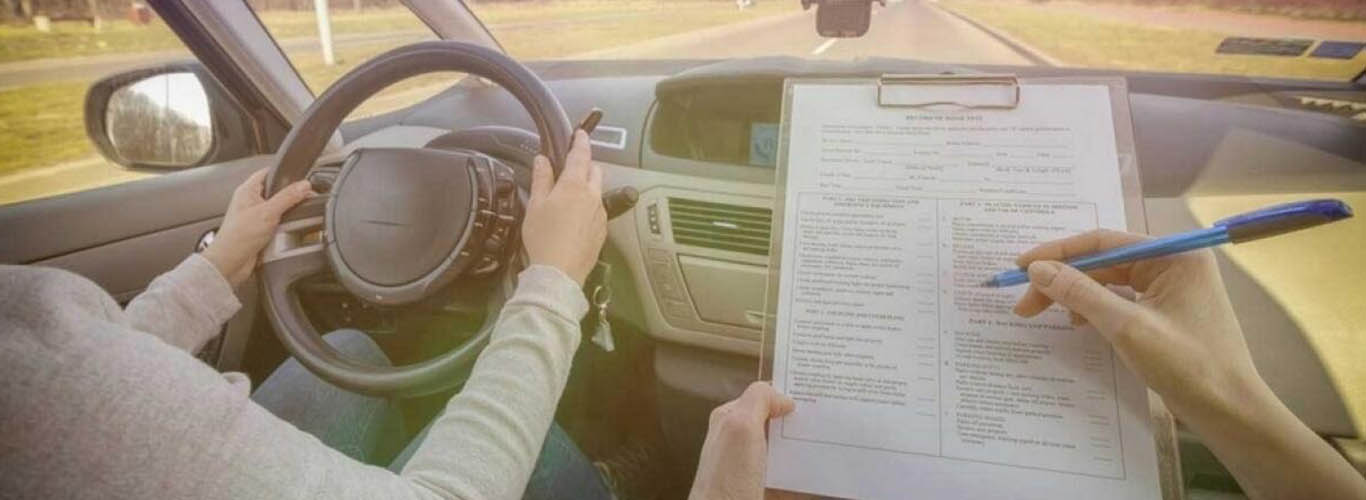There is no strict rule to pass your theoretical test before or during driving lessons. However, it can prove to be very helpful in understanding traffic signals, road signs and other knowledge before sitting behind the wheel.
In this blog, we have discussed the benefits of driving lessons while preparing for a theory test. We have also provided some tips to help you prepare for your test.
Are Driving Lessons Helpful for Theory Tests?
You can combine your driving lessons with the preparation for the theory test. It can prove to be very helpful in obtaining practical experience and knowledge. Here are some benefits that driving lessons can provide for your theory test:
Knowledge:
Driving lessons provide you with practical knowledge of how to drive, which can help you understand the rules and regulations covered in the theory test. They will also help you to grasp traffic signs and road markings.
Context:
When you are behind the wheel, you are exposed to real-life situations, which can help you understand how the rules apply in practice. This can help you remember and apply the rules when you are taking the theory test.
Hazard Perception:
Driving lessons provide you with opportunities to practice hazard perception skills in real-time. This can help you develop your skills and improve your reaction time when you are taking the hazard perception section of the theory test.
Instructor’s Feedback:
During driving lessons, your instructor can give you feedback on your driving skills and help you identify areas where you need to improve. This feedback can also be applied to your theory test preparation, helping you identify areas where you need more practice.

Tips to Prepare a Theory Test During Driving Lessons
Study the Highway Code in Depth:
It is a comprehensive guide to the rules of the road, and it’s essential to understand it thoroughly. Make sure to read it carefully, paying attention to the details of each rule and regulation. You can also take notes to help you remember important information.
Use a Variety of Study Materials:
Many study materials, including books, DVDs, and mobile apps, are available. Use a variety of resources to ensure you get a well-rounded understanding of the topics covered in the test. You can also use online resources like blogs and forums to get additional support and advice.
Understand the Test Format:
The theory test is divided into multiple-choice questions and hazard perception. Make sure you understand the test format, number of questions, time limit, and passing score.
Take Timed Mock Tests:
Timed mock tests are an excellent way to simulate the actual test experience. Practice with a timer to get used to the time pressure and pace yourself accordingly. You can also use the feedback from your mock tests to identify areas where you need more practice.
Take Advantage of Feedback:
If you’re using a practice app or taking mock tests, make sure to pay attention to the feedback. It can help you identify your weaknesses and focus your studying accordingly.
Practice Hazard Perception Skills:
The hazard perception part of your theory test requires you to identify potential hazards on the road. Practice with online resources, such as hazard perception videos, to develop your skills. Focus on identifying developing hazards, such as vehicles or pedestrians that may move into your path.
Understand the Scoring System:
In order to successfully pass the theory test, it is required to achieve a minimum score of 43 out of 50 on the multiple-choice section and a minimum score of 44 out of 75 on the hazard perception section. Make sure you understand the scoring system and how the test is graded to help you focus your efforts and maximize your score.
Learn Through Different Methods:
Different people learn in different ways, so it’s essential to use different methods to study for the theory test. Some people prefer reading, while others prefer watching videos or using interactive apps. Experiment with different methods and find what works best for you.
Focus on the Most Important Topics:
While having a broad understanding of all topics is essential, it’s also important to focus on the most important ones. These include road signs, traffic signals, stopping distances, speed limits, and road rules.
Practice Hazard Perception:
Hazard perception is crucial to the theory test. Practice by watching videos and identifying potential hazards, such as pedestrians, cyclists, or other vehicles. Make sure to practice regularly to improve your reaction time.
Manage Your Time:
Make sure to manage your time effectively during the test. It is advisable not to devote excessive time to challenging questions during the exam. Instead, allocate sufficient time for reviewing the answers.
Stay Updated:
The rules of the road can change, so it’s essential to stay updated on any changes or updates. Make sure to check the latest edition of the Highway Code and any updates or news from the DVSA.



